
 | The German Huguenot Museum in Bad Karlshafen |
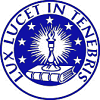 |
History - 4. The French Reformer John Calvin1. How the Huguenots got their name 1509 - 1934: Calvin's years as lawyer, humanisc and devout Christian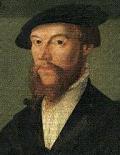 John Calvin John Calvin, the father of the Huguenots, was born in Nayon (Picardy) on 10. July 1509. He was the son of Gérard Chauvin (Cauvin), an administrative offical of the bishop John Calvin began his education in Paris in 1523. One of his teachers was Mathurin Cordier, Geneva. From around 1528 he studied law in Orléans and Bourges, then returned to Paris in 1531 to apply himself to humanist studies. In the years 1533 and 1534 he was converted to the ideas of the humanist Lefevre. He became a devout Christian and admirer of Martin Luther. 1534 - 1536: Calvin's years as writer and spiritual mentor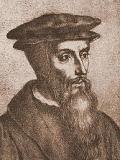 John Calvin By joining the reform movement Calvin became an adversary of the official Catholic Church of France and a target for relentless persecution. He left Paris and sought refuge in Nérac in the palace of Marguente of Navarra, the king's sister, who sympathized with the Protestants. In 1534 he was back in the capital. After a new wave of repression Calvin left France for good. He first went to Basle where he published in 1535 the first edition of his main work "Institutio religionis christianae". In the preface he dedicated it to the French king Francis I and tried to prove to the king that Protestants were not rebels. It was in vain. At the end of March 1536 Calvin crossed the Alps to visit Renata of Ferrara, the daughter of Louis XII of France and the wife of Duke Hercules of Este. She became a lifelong friend with whom he corresponded, offering in his letters spiritual advice. 1537 - 1538: Calvin's insistance on social discipline and another move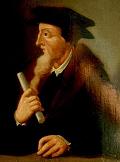 John Calvin Calvin planned to pursue his scholarly studies in Strasburg. On the way there he passed through Geneva, where the French reformer Guillaume Farel had begun to introduce a Protestant reform of the Church. Ferel persuaded Calvin to undertake the organisation of the reforms. The citizens of Geneva rebelled against the strict moral discipline imposed on them by Calvin. Two years later the city council removed Calvin and Farel from their posts and forced them to leave the city. Calvin left for Basle, he moved on to Strasburg where through the good offices of Martin Bucer, he became the minister of the French refugee congregation. 1540: Calvin's private lifeIn August 1540 Calvin married Idelette de Bure, the widow of a former Anabaptist. Three children born to the couple died soon after their birth. The death of his wife nine years later was a loss Calvin never got over. 1541 - 1553: Calvin's new Church Order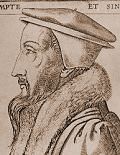 John Calvin The political situation in Geneva had undergone a change. The Libertine party hostile to Calvin no longer had the upper hand. At the request of the Genevan city council Calvin returned to the city where he would spend the rest of his life on 1st September 1541. Calvin now succeeded in introducing his new church order (Ordonnances ecclésiastiques) which determined the ecclesiastical, social and moral life of the Christians. It laid down that there would be four ecclesiastical posts:
1541 - 1553: Calvin's ministry and teaching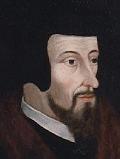 John Calvin Calvin's influence was not restricted to Geneva only. He promoted the Protestant cause throughout Europe by way of his huge correspondence and his visits. His consolatory letters to the persecuted Huguenots reveal a man of fine feeling and a sympathetic adivser. To provide ministers for both, the Huguenot congregations and for refugee congregations, Calvin founded the Genevan Academy. Theodor Beza from Vezelay in Burgundy became its director. Calvin preached and tought regularly in the main church of Geneva, St Pierre. His Bible interpretations of almost all the books of the Old and New Testaments were of fundamental value to the students who came to Geneva from all over the world. They were published in the Corpus Reformatorum for posterity. 1553: A shadow on Calvin's reputation as a reformer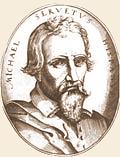 Doctor Michael Servet A shadow fell on Calvin's reputation when the Spaniard Michael Servet was condemned and burt at the stake as a heretic for rejecting the Holy Trinity. He had fled to Geneva in 1553 to escape the Catholic Inquisition. Calvin had applied for the death penalty which met with the approval of the Protestant Cantons of Switzerland. The Council of Geneva condemned Servet to be burnt at the stake for blasphemy. Calvin's attempt to commute the sentence to death by the sword failed. The trial of Servet has cast a cloud over the world's view of Calvin. 1564: Calvin's departure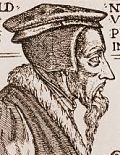 John Calvin Failing strength and illness overshadowed his last years. Calvin died on 27. May 1564 after writing farewell letters to the Genevan city council and to the Genevan Company of ministers. According to his wish his grave was not named. He had not worked to attain honour for himself. It was to the glory of God he had dedicated his life. |
© The German Huguenot Museum 2026 |